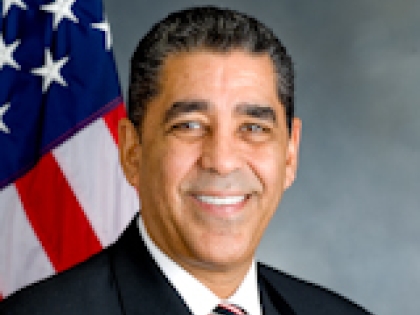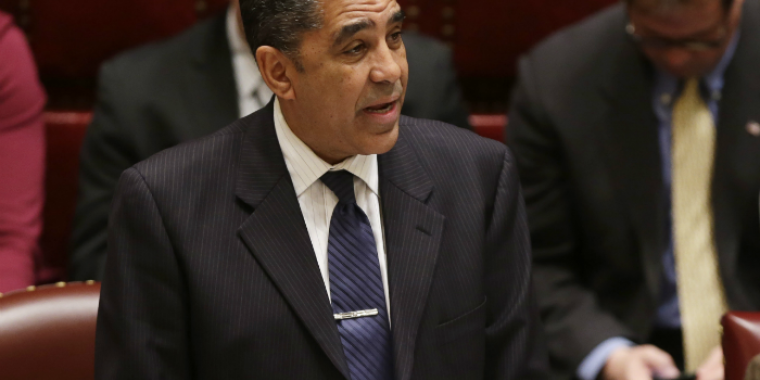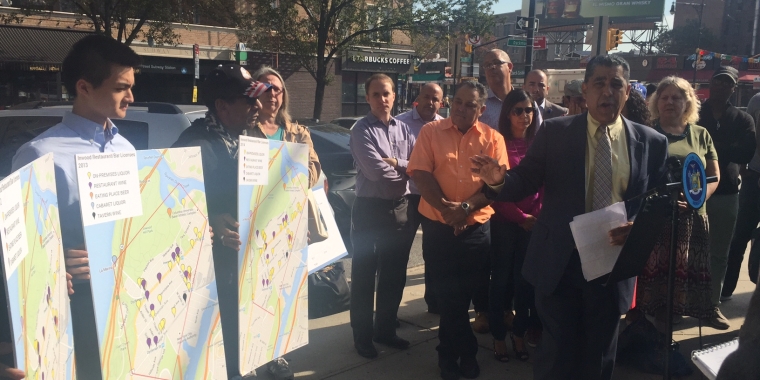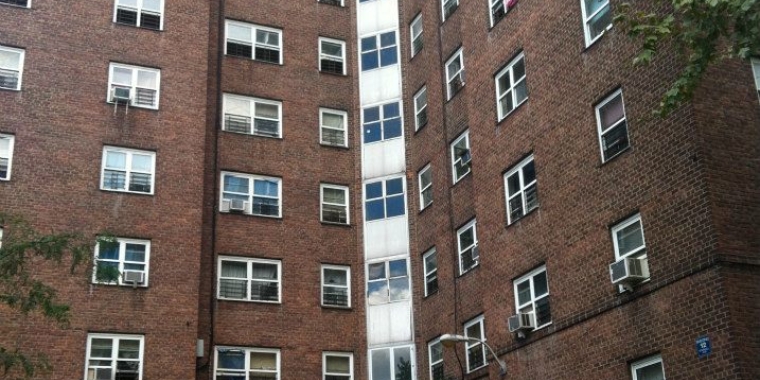
Senators Espaillat and Peralta Advocate for State Dream Act

By Jessica Bakeman and Eliza Shapiro
ALBANY—Latino lawmakers are putting pressure on Governor Andrew Cuomo to support legislation that would give undocumented immigrants access to financial aid for college, as the state Assembly majority places the bill among its top priorities.
Senators Jose Peralta and Adriano Espaillat drafted a letter to Cuomo asking him to prioritize the DREAM Act in his State of the State speech on Jan. 8, which is “a defining expression of principles and values,” they wrote.
“The challenges identified and solutions proposed become leading topics of political and civic discourse statewide,” the Democrats wrote in the letter, an unfinished copy of which Capital was allowed to review. “Given New York’s national and international standing, they often also generate discussion and debate across the country and around the world.
Cuomo has said he supports the concept but has not taken position on the bill itself, a proposal that would let immigrants who are in the country illegally receive money for college from the state Tuition Assistance Program. He hasn't done anything to proactively support the proposal, deflecting to the federal government when asked about the legislation; the state proposal is different from the federal legislation of the same name.
Cuomo spokeswoman Melissa DeRosa said in a statement on Monday: "The governor supports the federal DREAM Act and is reviewing state-level proposals."
Democrats in the state Legislature pushed for the bill last year, but Senate Republicans oppose using tax dollars for non-citizens. Senate GOP Leader Dean Skelos, of Long Island, has said he would support a component of the legislation that establishes a private fund to provide scholarships for immigrant students.
Assembly Speaker Sheldon Silver held an event in New York City on Monday identifying the DREAM Act as a top priority for his conference, asking for $25 million in next fiscal year's budget, “a relatively small amount of money,” he said.
“I think the governor is sympathetic to what we're proposing here today,” Silver told reporters after the press conference. “I'm not sure—you'd have to ask him what kind of support we're going to have. I think he's sympathetic to the plight of the 'DREAMers' that are here today.”
When the Legislature voted on this fiscal year's budget, many lawmakers in the Black, Puerto Rican, Hispanic & Asian Legislative Caucus admonished opponents of the bill for blocking their push to fund the legislation. Silver, a key player in budget negotiations, wouldn't say whether he would support a budget without the DREAM Act.
“We never draw lines in the sand,” he said. “We never negotiate in public. We'll leave the negotiations for later. It's our intention to pass it and do whatever we can to make sure this becomes the law.”
Assemblyman Karim Camara, who is chair of the minority caucus, said he thinks the governor sees immigrants' access to college as a significant issue.
"We would love to have the governor's support," Camara said. "Now going into the legislative session, we will see what's possible when the negotiations begin."
Advocates are planning a push this session to reform TAP, which is in its 40th year. The New York Public Interest Research Group, unions and other groups want the Legislature to raise the maximum award from $5,000 to $6,500, since public college tuition has exceeded the maximum amount in recent years.
SUNY tuition for in-state students without fees is currently $5,870, and at CUNY, it's $5,730.
Last session, the Legislature passed a law requiring SUNY and CUNY to release reports with suggestions about how TAP can be improved. In CUNY's report, the New York City-based university system came out swinging for the DREAM Act, but SUNY's report didn't mention the proposal or take any definitive positions.
A SUNY spokesman said there are significantly more students in the CUNY system who would benefit from the proposal but pointed to a January 2012 resolution from the SUNY Board of Trustees in support of the act.
New York is one of 16 states that allows undocumented students who live here to pay in-state tuition. Three states—Texas, New Mexico and California—currently have state-level DREAM Acts.
The university systems have both been supportive, Peralta said, as well as Democratic lawmakers. He expects New York City mayor-elect Bill de Blasio to be an important ally this session, as well. But proponents need Cuomo's full weight to “get it to the finish line,” he said.



